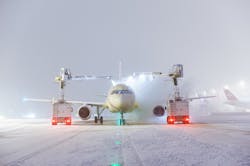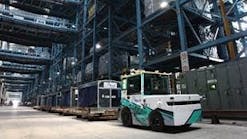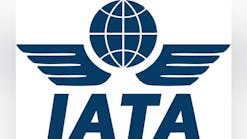The German ground handling sector is steadily growing this year despite the existing threat of a new wave of pandemic in Germany and an acute shortage of staff in the industry, caused by its massive cuts during the peaks of COVID-19 in 2020-2021.
The ongoing recovery of the German aviation sector from the pandemic lockdowns and the increase of the number of flights and tourist flows in the country’s airports this year led to the massive staff shortages in the aviation and related sectors, with the ground handling sector being amongst the most impacted from this. The situation is complicated by the increase in COVID infections in July in Germany, as members of the existing staff are having to call in sick to quarantine.
Since the beginning of the pandemic, the number of jobs in the German ground handling industry has been significantly cut. This year many of industry players hope to fill their positions. However, the number of potential workers is significantly lower than existing needs. The pandemic led to the fact that many of ground workers left the industry to join other employers. It is suspected that many of these members of the workforce currently have no plans to return to their previous job.
The seriousness of the problem is confirmed by recent statistics and a study, conducted by the German Economic Institute (IW), the German analyst agency and a think tank, which found German airports were short of 7,200 ground staff and flight attendants.
In the meantime, the German federal government, is aware of the existing problem, considering ways of its solution. One such solution involves easing rules to allow both airlines and ground handlers to recruit temporary workers from abroad. That means the provision of quick special permits from the authorities for the deployment of about 2,000 workers from Turkey at the country's airports.
According to German news outlet Bild, the move would allow German airport service providers to recruit several thousand temporary workers from Turkey for several months already from the middle of July. However, it will take a number of weeks for the workers to be recruited and trained.
In the meantime, in addition to staff shortages, another problem for the industry this year is related to the ongoing military conflict between Russia and Ukraine, which has led to serious interruptions of gas supplies to Germany from Russia – with the possibility of their complete suspension – as well as its ever-growing prices.
According to analysts, that puts an additional pressure on the German aviation and ground handling sectors, as the cost of energy grows. That leads to the growth of overall costs in the German ground handling sector, particularly for labor, despite the fact that salaries in the industry have always been among the highest in Europe.
In the case of fuel, as of now, its global prices have already reached historical highs and there is a possibility that their growth will continue in the second half of the current year. High energy dependence of Germany from Russia, according to some local analysts, will restrict the growth of the German aviation/aircraft engineering as well as ground handling sector for the next several years.
Still, despite the current geopolitical uncertainties and record energy prices in Germany, the ground handling sector of the country remains traditionally within the interests of global majors, while many of them consider their more active expansion in the industry already this year. This is despite a traditionally high level of competition and saturation of the industry and its maturity.
One of such majors is dnata. In May, the company officially entered the German market through the acquisition of Wisskirchen Handling Services – the exclusive operator of the Cologne Bonn Cargo Centre, a 12,000 square meter facility at Cologne/Bonn Airport.
The company considers the German ground handling sector as one of the most promising for its growth at least in the EU. This has been recently confirmed by Stewart Angus, dnata’s regional CEO for Europe.
“We currently offer quality and safe cargo services at Cologne/Bonn Airport (CGN) with a team of 180 highly trained employees. Our 12,000 square meter cargo facility, Cologne Bonn Cargo Centre, is equipped with the latest technologies and complies with the highest industry standards ensuring efficient and safe handling of a broad range of cargo, including general cargo, perishables, pharmaceuticals, dangerous goods, electronics and fast-moving consumer goods,” Angus says.
Angus also adds the company sees great business opportunities in the German market of ground handling services. According to him, CGN is already the third largest airport in Germany in terms of cargo operations with significant capacity for a further growth.
“It operates 24 hours a day and is ideally located in the heart of Northwest Europe with excellent road connections. In 2021 cargo handled at CGN increased by 14 percent year over year, marking a new annual record for the airport,” Angus says.
According to Angus, a particular attention of the company this year will be to integrate its new investment in Germany into its global network and to develop its business by attracting customers to operate at Cologne Bonn Airport.
In the meantime, other global ground handlers also consider the German market a priority for their development this year. Most of them expect a further growth of the industry in the second half of the current year, although believing that its growth rates will be lower those initially expected by most operators and analysts.
“The German market will grow, but at a slower pace than expected. Main drivers are the capacity and slot restrictions at airports as well as resourcing challenges in the overall market (with airlines, airports and servicing companies),” says Philipp Frech, head of Germany and Austria at Swissport International.
As Frech adds that the recovery of the German aviation sector has contributed to good results of the company in the second quarter of 2022.
“Our first half results in the German GH market were impacted on the one hand by the volume reduction of our airline customers in Q1 2022, mainly due to the Corona Omicron variant. On the other hand, our results were positively impacted by the enormous flight ramp up in Q2. This month, we successfully started our operations at Cologne Bonn Airport for our customer Eurowings. Our focus this year is further growth,” says Frech.
As for existing challenges, Frech and other local ground handlers believe the labor market has been the main challenge for the industry since 2021. They also believe that an additional pressure on the industry and its resourcing and quality standards will be put by a high volume of cancellations and flight irregularities from other airports and countries, that will probably continue to be observed throughout the current year.






